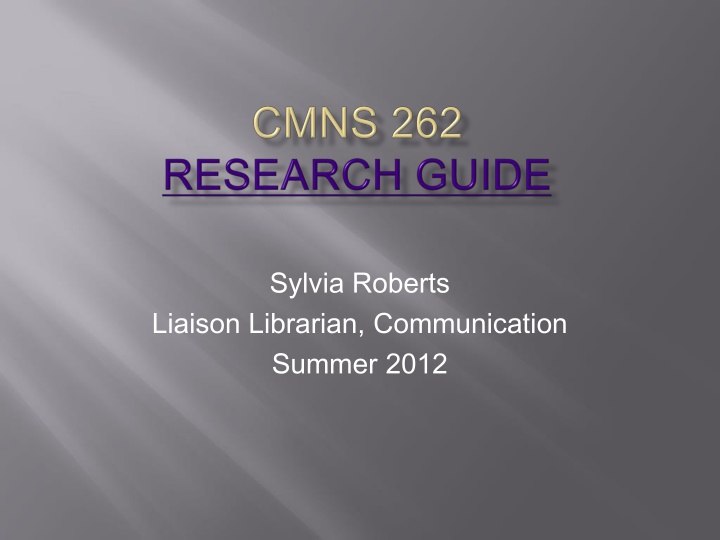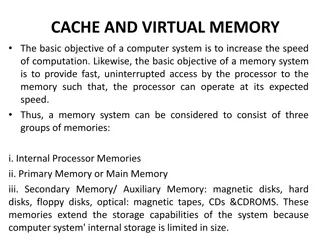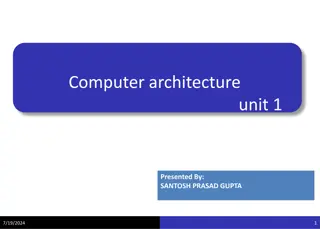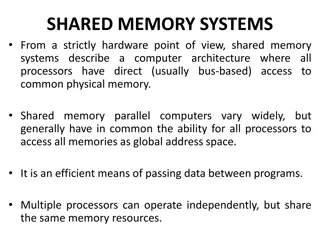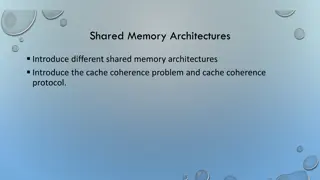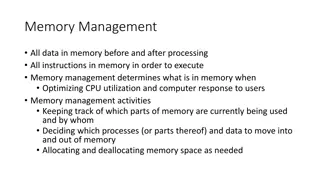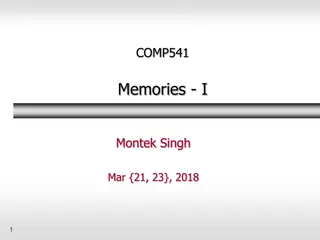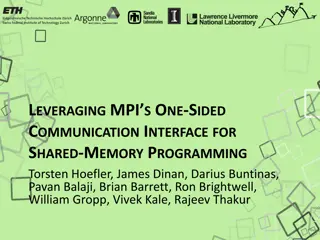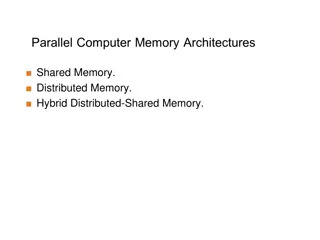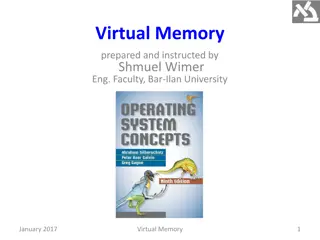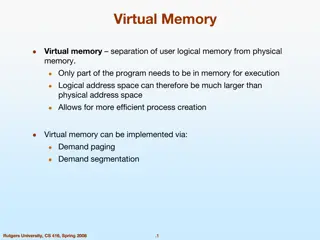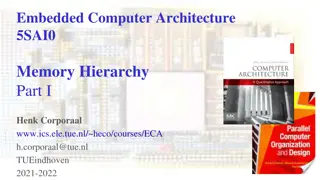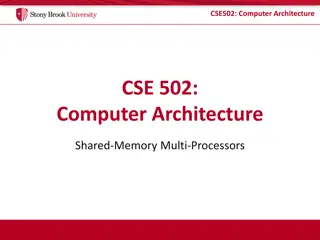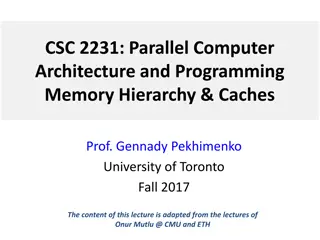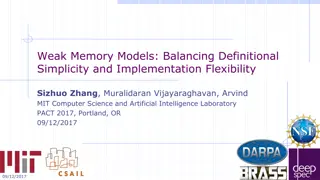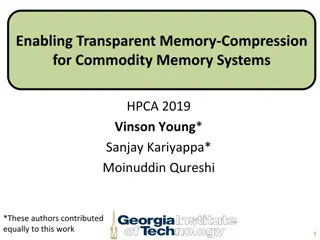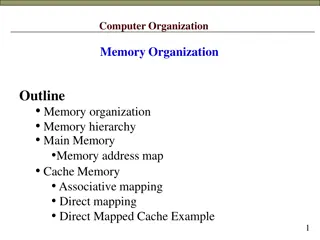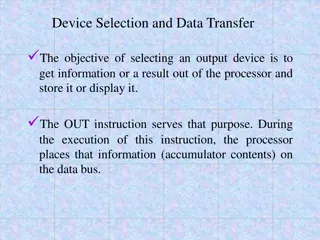Advanced Computer Architecture: Shared Memory Models
Shared memory models in advanced computer architecture play a vital role in communication between processors and memory. They include Shared Memory, Centralized Shared Memory, Distributed Memory, and Shared Address Model. Each model has its advantages and challenges, impacting programming ease, latency, memory scalability, and data communication complexity. Understanding these models is essential for designing efficient computer systems.
Download Presentation

Please find below an Image/Link to download the presentation.
The content on the website is provided AS IS for your information and personal use only. It may not be sold, licensed, or shared on other websites without obtaining consent from the author.If you encounter any issues during the download, it is possible that the publisher has removed the file from their server.
You are allowed to download the files provided on this website for personal or commercial use, subject to the condition that they are used lawfully. All files are the property of their respective owners.
The content on the website is provided AS IS for your information and personal use only. It may not be sold, licensed, or shared on other websites without obtaining consent from the author.
E N D
Presentation Transcript
research guide Sylvia Roberts Liaison Librarian, Communication Summer 2012
Build on Assignment #1s direct observation exercise Define a more focused, specific research question Select 2 additional research methods to explore your question Use a minimum of 5 scholarly sources: To justify choice of methods To situate research project in context of qualitative research practice Select sources from reading materials or library research CMNS 262 Summer 2011
Identify search terms to describe the focus of your research Select appropriate search tools Use search syntax effectively Assess your search results to select scholarly research publications Capitalize on your findings and/or modify your search strategy for better results CMNS 262 Summer 2011
Cell phones Cellular telephones Mobile phones Mobile communication Social Interaction Interpersonal Behavior / behaviour CMNS 262 Summer 2011
Cell phones Cellular telephones Mobile phones Mobile communication Social Interaction Interpersonal Behavior / behaviour Public space? Observation? Library / libraries Etiquette? Privacy? CMNS 262 Summer 2011
CMNS article indexes Communication & Mass Media Complete Communication Abstracts Geobase Sociological Abstracts CMNS 262 Summer 2011
Use to communication research results and ideas to other scholars around the world Written by experts, uses language and theoretical approaches familiar to those in the discipline PEER REVIEWED PEER REVIEWED Typically, research articles include: Research affiliations of authors Literature review and sources consulted Research methodology CMNS 262 Summer 2011
Humphreys, L. (2005). Cellphones in public: social interactions in a wireless era. New Media & Society, 7(6), 810-833. doi:10.1177/1461444805058164 Campbell, S. (2008). Perceptions of Mobile Phone Use in Public: The Roles of Individualism, Collectivism, and Focus of the Setting. Communication Reports, 21(2), 70-81. doi:10.1080/08934210802301506 CMNS 262 Summer 2011
Cutting edge topic? Too narrow a focus? Maybe it s not an area worthy of research or not trendy Think of related literature that you can use Consult reference librarians (use Ask Us for options) or contact me CMNS 262 Summer 2011
Sylvia Roberts sroberts@sfu.ca / 604-291-3681
